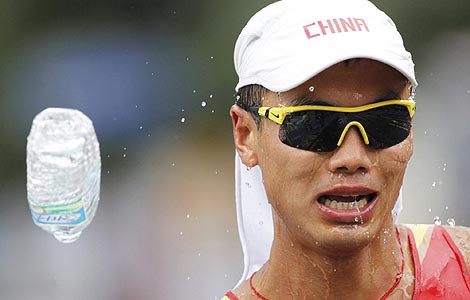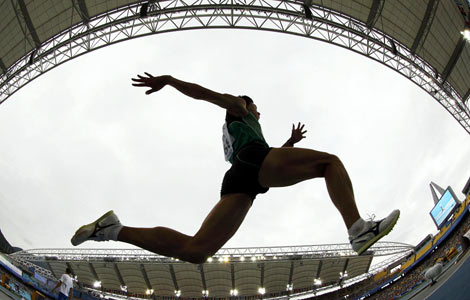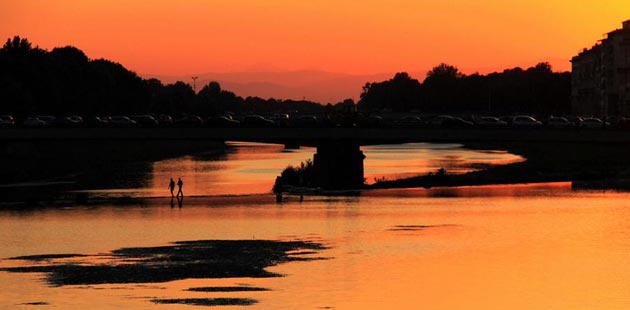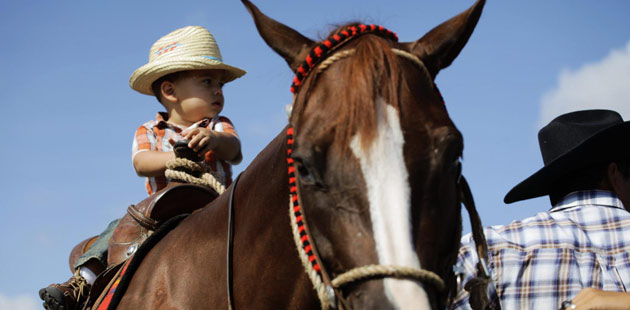Israel vows 'tolerance' for protests
Updated: 2011-09-06 08:09
(Agencies)
|
|||||||||||
TEL AVIV - A senior officer said on Monday that Israeli soldiers would show "much more tolerance" towards Palestinian demonstrations than in the past thanks to riot-control training and new equipment designed to reduce injuries and deaths.
Israel is wary of large-scale protests by Palestinians as their leaders sidestep stalled peace talks by appealing for United Nations statehood recognition this month.
A similar deadlock in 2000 triggered a Palestinian revolt that Israel fuelled with military crackdowns, resulting in a heavy death toll among unarmed protesters.
Last May and June, pro-Palestinian marchers throwing stones swarmed Israel's fortified boundary fences from Lebanon and Syria in two separate protests.
Israeli soldiers opened fire, killing 13 people on the Lebanese side and an unconfirmed number, which Syria puts at 23 although Israel disputes this, on the Syrian side.
Brigadier-General Michael Edelstein, the officer crafting Israel's counter-demonstration doctrines, said troops were now better equipped and trained to police the occupied West Bank and the boundaries with Gaza, Lebanon and Syria.
"The balance has changed. We have more means that we can use, therefore the use of lethal weapons will decrease," he told foreign reporters in a briefing.
He said there was no plan to reinforce military garrisons, which had been practising non-lethal riot control techniques.
Israel has also invested heavily in riot-dispersal gear including accurate tear-gas launchers, high-powered loudspeakers that emit an intolerable buzzing noise, and cannons for dousing crowds with water or a foul-smelling liquid known as "skunk".
The objective, Edelstein said, was "to be able to handle riots while diminishing casualties on both sides".
Asked if this meant that Israeli forces, accused in the past of shoot-on-sight policies against Palestinians, would now show more tolerance, he said: "Much more tolerance."
The administration of US-backed Palestinian President Mahmoud Abbas has denied seeking bloodshed and Edelstein, like other Israeli officials, said it was too early to know how this month's showdown at the United Nations would resonate locally.
But the political upheaval of the "Arab Spring" and the events on the border have made Israel nervous.
Coordination
In the West Bank, where Abbas holds sway, Palestinian security forces coordinate with the Israeli army, which wields overall control and guards a network of Jewish settlements.
Edelstein said Israeli commanders would try to contact protest leaders in advance to try to prevent friction.
"Our policy, basically, is to let the Palestinian people demonstrate as long as they will be within the Palestinian cities and be -- not controlled, but contained, let's say -- by the Palestinian authorities," he said.
An Israeli official last year appeared to acknowledge Israel's failings in dealing with unarmed protests.
A US diplomatic cable published by WikiLeaks quoted Amos Gilad, a senior adviser to Defence Minister Ehud Barak, as saying: "We're not good at dealing with Gandhi."
Asked about possible marches in rural areas, or near Jewish settlements that have armed patrol squads of their own, Edelstein said the permissible limits would be decided by the military on site.
For instance, a thousand demonstrators would not be allowed to come within two metres of an Israeli security fence, nor would the military allow protesters to attack Israel's West Bank barrier, which cuts through Palestinian land and has sparked frequent clashes.
He said commanders in the field would use loudhailers with a range of 1 km (half a mile) to issue orders in Arabic, and would try to converse with protest leaders by phone.
Edelstein, a former commando now in charge of Israel's infantry, saw no doctrinal problem in transforming thousands of soldiers into de-facto paramilitary police auxiliaries.
"To have people who have a good readiness for war and to shift them to these tasks is much easier than the other way around," he said.
Hot Topics
Libya conflict, Gaddafi, Oil spill, Palace Museum scandal, Inflation, Japan's new PM, Trapped miners, Mooncake tax, Weekly photos, Hurricane Irene
Editor's Picks

|

|

|

|
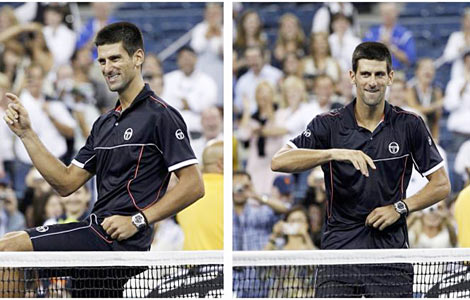
|

|


